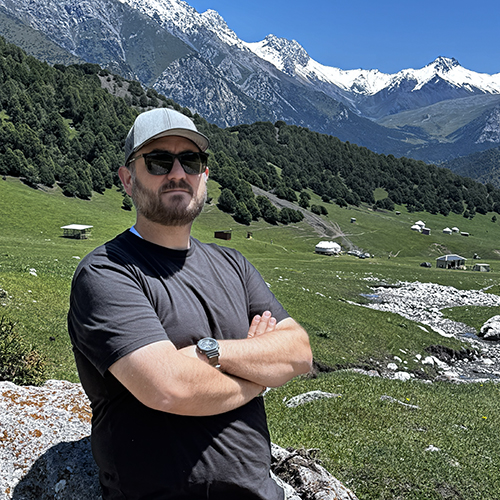Eric Adelberger, UW professor emeritus of physics, has been awarded the 2025 Einstein Prize from the American Physical Society (APS). The award honors “outstanding achievement in theory, experiment, or observation in the area of gravitational physics.” The $10,000 prize is awarded biennially.
Adelberger was honored “for outstanding contributions to experimental gravity using precision torsion-balance measurements, which have profound implications for fundamental physics.” Of the 14 times the Einstein Prize has been awarded, this is only the third time it has been given for experimental work.

Adelberger was co-founder and long-time Principal Investigator of the Eöt-Wash Group in the UW Department of Physics, created in 1986 to use new generations of highly sensitive instruments to test gravity and search for completely new physics that could lie hidden underneath gravity. Three members of that research team — Adelberger, co-founder and UW professor emeritus Blayne Heckel, and UW professor Jens Gundlach — received the prestigious 2021 Breakthrough Prize in fundamental physics for their work.
Adelberger’s research focused on searches for new physical phenomena that might result from theoretical attempts to unify gravity with particle physics. The main thrusts of his research have been tests of Einstein’s Equivalence Principle and studies of the strength of gravity at separations smaller than the diameter of a human hair. These tests featured novel instruments that minimized many possible systematic errors. During a 35-year period, the sensitivity of the tests improved by a factor of about one million.
Despite sophisticated testing, Adelberger and his colleagues have not yet found any evidence that would indicate a breakdown in Einstein’s classical theory of relativistic gravity. “But we have populated a small ‘graveyard’ of theoretical proposals that are no longer viable and inspired other groups to mount new searches and propose new testable hypotheses addressing the most important issue in fundamental physics — the unification of gravity, dark energy, dark matter and particle physics,” he says.
Although Adelberger has been a professor emeritus since 2007, he continued his work with the Eöt-Wash research group for many more years. In a 2020 interview for the American Institute of Physics, he said the group’s objective was “to develop wonderful instruments and exploit them to test current open issues in fundamental physics. …I'm very proud of the innovations and the standards we've set in doing these things.”
Adelberger appreciates the outstanding intellectual and technical environment in the UW Department of Physics and its Center for Experimental Nuclear Physics and Astrophysics, noting that “this made it possible for a small group like ours, focused on the ultra-high sensitivity frontier in physics, to respond rapidly to new theoretical developments and have an outsized impact on fundamental physics.” He also acknowledges the importance of long-time support from the National Science Foundation.
The American Physical Society will present the Einstein Prize to Adelberger at its March 2025 meeting, where Adelberger will deliver a lecture as the Einstein Prize recipient.
More Stories

AI in the Classroom? For Faculty, It's Complicated
Three College of Arts & Sciences professors discuss the impact of AI on their teaching and on student learning. The consensus? It’s complicated.

Through Soil Science, an Adventure in Kyrgyzstan
Chemistry PhD alum Jonathan Cox spent most of 2025 in Kyrgyzstan, helping farmers improve their soil—and their crops—through soil testing.

A Sports Obsession Inspires a Career
Thuc Nhi Nguyen got her start the UW Daily. Now she's a sports reporter for Los Angeles Times, writing about the Lakers and the Olympics.
